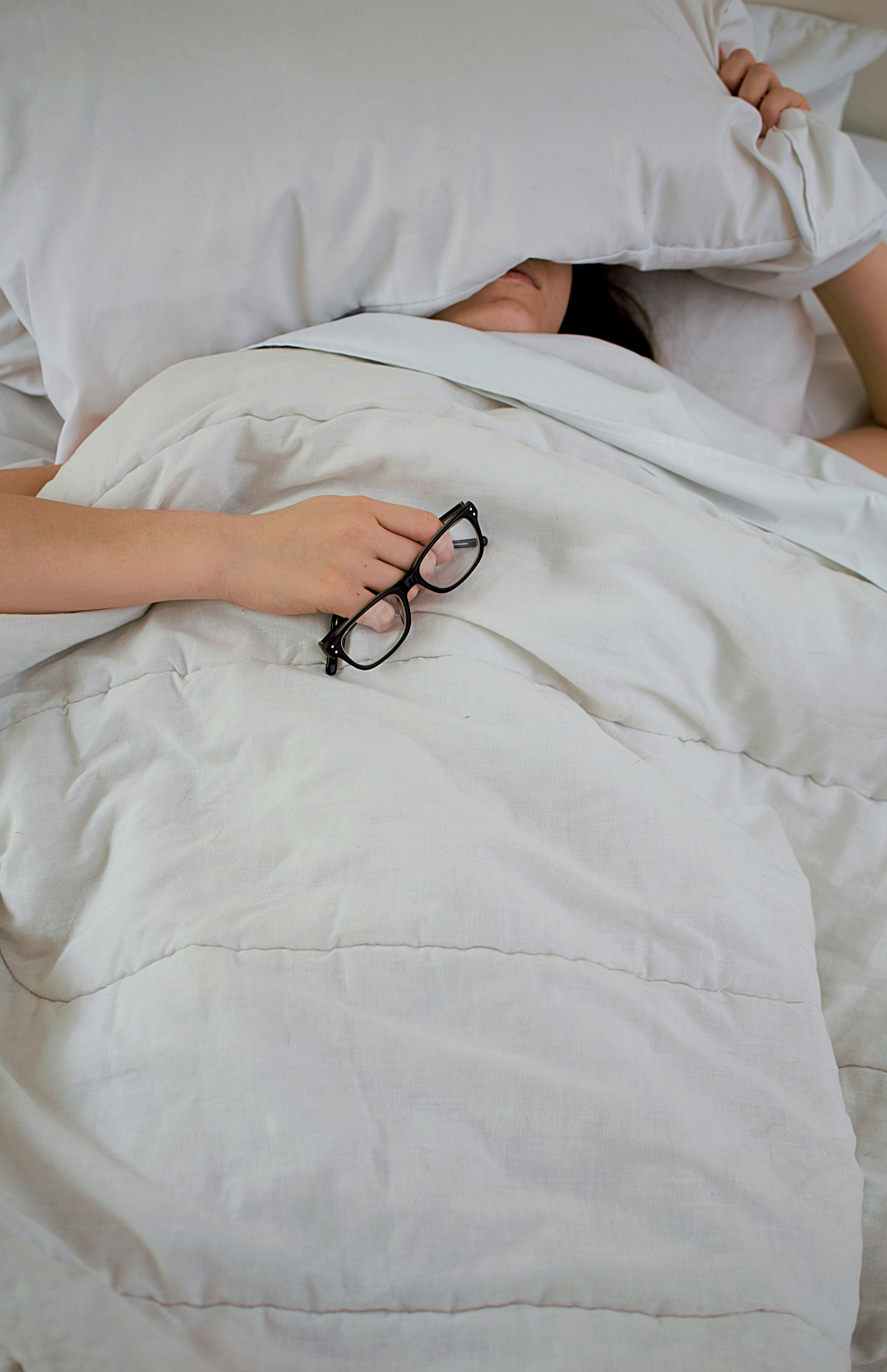Have you ever wondered how crucial sleep is for your weight loss journey? Well, wonder no more! In this article, we will explore the fascinating connection between sleep and shedding those extra pounds. You’ll be surprised to learn just how much of an impact your sleep habits have on your weight. So, grab a comfy pillow and get ready to dive into the mysterious world of slumber and the scale.
The effects of sleep deprivation on weight loss are certainly eye-opening. Research has shown that lack of sleep can disrupt the delicate balance of hormones in our bodies that control hunger and satiety, leading to increased cravings for unhealthy foods. Additionally, inadequate sleep can slow down your metabolism, making it more challenging for your body to burn calories efficiently. In fact, studies have suggested that individuals who consistently get less sleep tend to have a higher body mass index (BMI) and are more likely to be overweight or obese. So, if you’re looking to shed those pounds, it’s time to prioritize your shut-eye! Getting enough sleep is not only essential for your overall health and well-being, but it also plays a crucial role in weight management. In fact, research has shown a clear link between sleep deprivation and weight gain. In this article, we will delve into the various effects of sleep deprivation on appetite, food choices, metabolism, exercise, and overall energy balance. We will also explore the importance of both sleep quality and quantity, as well as provide some tips for promoting healthy sleep. Let’s begin!
Effects of Sleep Deprivation
Increased appetite
One of the most significant effects of sleep deprivation is the increase in appetite. When you don’t get enough sleep, your body experiences hormonal imbalances that lead to an increased production of ghrelin, the hormone responsible for stimulating hunger, while reducing the levels of leptin, the hormone that signals fullness. This hormonal imbalance can cause you to feel hungrier and lead to excessive food consumption.
Cravings for unhealthy foods
In addition to increased appetite, sleep deprivation also triggers cravings for unhealthy foods. Several studies have shown that when you’re sleep-deprived, your brain’s reward centers become more active, making you more susceptible to cravings for high-calorie, sugary, and fatty foods. This can make it challenging to maintain a healthy diet and can contribute to weight gain over time.
Impaired insulin sensitivity
Sleep deprivation has also been linked to impaired insulin sensitivity. Insulin is responsible for regulating blood sugar levels, and when your body becomes less sensitive to insulin, it can lead to higher blood sugar levels and increased fat storage. This impaired insulin sensitivity is often associated with weight gain and an increased risk of developing conditions like type 2 diabetes.
Reduced metabolism
Another effect of sleep deprivation is a reduction in metabolism. When you’re sleep-deprived, your body produces less of the hormone leptin, which negatively affects your metabolism. Leptin plays a crucial role in regulating energy expenditure and metabolic rate. With reduced leptin levels, your body burns fewer calories at rest, making it more challenging to lose weight and maintain a healthy weight.
Hormonal Changes during Sleep
Ghrelin and leptin levels
During sleep, your body regulates the levels of various hormones, including ghrelin and leptin. Ghrelin is responsible for stimulating hunger, while leptin signals fullness. A lack of sleep disrupts this balance, leading to increased ghrelin levels and decreased leptin levels. As a result, you may experience an increased appetite and reduced feelings of satiety.
Cortisol levels
Sleep deprivation also affects cortisol levels in the body. Cortisol is a stress hormone that helps regulate energy levels and metabolism. When you’re sleep-deprived, your body produces more cortisol, leading to increased stress levels and potentially contributing to weight gain. Chronically high cortisol levels can also disrupt sleep patterns, creating a vicious cycle of sleep deprivation and weight-related issues.
Sleep and Food Choices
Relationship between sleep duration and food choices
Recent studies have found a clear connection between sleep duration and food choices. People who regularly get enough sleep are more likely to make healthier food choices, such as opting for fruits, vegetables, and whole grains. On the other hand, sleep-deprived individuals are more likely to consume high-calorie, processed, and sugary foods. This relationship emphasizes the importance of adequate sleep in maintaining a healthy diet.
Effects of lack of sleep on food preferences
Sleep deprivation can also affect your food preferences. When you’re sleep-deprived, your brain’s reward centers become more active, making you more prone to seeking out foods that provide instant gratification. These foods are often high in fat, sugar, and salt, which can lead to weight gain and an increased risk of developing metabolic disorders.
Impact of Sleep on Energy Balance
Caloric intake
Sleep deprivation has been consistently linked to an increased caloric intake. Studies have shown that sleep-deprived individuals consume significantly more calories, especially from high-fat, high-sugar foods. This excessive caloric intake can contribute to weight gain and difficulty in maintaining a healthy weight.
Energy expenditure
In addition to increased caloric intake, sleep deprivation also affects energy expenditure. When you’re sleep-deprived, your body burns fewer calories at rest, resulting in a slower metabolic rate. This reduced energy expenditure can make it harder to lose weight and maintain a healthy weight.
Weight gain and obesity risk
The combination of increased caloric intake and reduced energy expenditure due to sleep deprivation can lead to weight gain and an increased risk of obesity. Chronic sleep deprivation disrupts the delicate balance between energy intake and energy expenditure, making it more challenging to achieve weight loss goals and maintain a healthy body weight.
Sleep and Exercise
Effect of sleep on physical performance
Getting enough sleep is crucial for optimal physical performance. Sleep deprivation can negatively impact your strength, endurance, and overall athletic performance. Lack of sleep increases perceived exertion during exercise, making workouts feel more challenging than they actually are. It can also lead to slower muscle recovery and increased risk of injuries.
Relationship between sleep and exercise habits
Sleep and exercise have a reciprocal relationship. Regular exercise can improve sleep quality and duration, while adequate sleep supports optimal exercise performance. Engaging in regular physical activity can help regulate your circadian rhythm, making it easier to fall asleep and wake up at consistent times. On the other hand, getting enough sleep provides the energy and mental clarity needed to maintain a consistent exercise routine.
Sleep Quality vs. Quantity
Importance of both quality and quantity of sleep
When it comes to sleep, both quality and quantity play vital roles in supporting overall health and weight management. While getting the recommended 7-9 hours of sleep per night is essential, the quality of your sleep is equally important. Restorative sleep, characterized by uninterrupted sleep cycles and deep sleep stages, allows your body to repair and regenerate. Prioritizing both the quantity and quality of your sleep can help optimize your energy levels, metabolism, and overall well-being.
Tips for improving sleep quality
To improve sleep quality, consider implementing the following tips:
- Establish a regular sleep schedule: Go to bed and wake up at consistent times, even on weekends.
- Create a sleep-friendly environment: Keep your bedroom dark, cool, and quiet, and invest in a comfortable mattress and pillows.
- Practice relaxation techniques: Incorporate relaxation techniques such as deep breathing, meditation, or gentle stretching before bed to help calm your mind and prepare your body for sleep.
Sleep Disorders and Weight Loss
Sleep apnea
Sleep apnea is a sleep disorder characterized by interrupted breathing during sleep. This condition not only affects the quality of your sleep but can also lead to weight gain and difficulty losing weight. Sleep apnea is often associated with obesity, and research has shown that treating sleep apnea can improve weight management and overall metabolic health.
Insomnia
Insomnia, the difficulty falling asleep or staying asleep, can also have a significant impact on weight loss efforts. Sleep deprivation resulting from insomnia can disrupt your metabolism, increase appetite and cravings, and make it harder to engage in regular physical activity. Treating insomnia and improving sleep quality can help support weight loss goals.
Effect of treating sleep disorders on weight loss
Treating sleep disorders can have a positive impact on weight loss efforts. By improving sleep quality and duration, treating sleep disorders like sleep apnea and insomnia can help regulate hormone levels, reduce appetite, and improve energy levels. This, in turn, supports a healthy diet, regular exercise, and overall weight management.
Lifestyle Factors and Sleep
Impact of diet on sleep quality
Your diet can greatly impact your sleep quality. Consuming excessive amounts of caffeine, especially close to bedtime, can disrupt your ability to fall asleep and stay asleep. Similarly, consuming heavy, high-fat meals or spicy foods before bed can lead to indigestion and discomfort, making it harder to sleep restfully. Opting for a balanced diet that includes sleep-promoting foods like whole grains, lean proteins, and magnesium-rich foods can help improve sleep quality.
Effect of exercise on sleep
Regular physical activity can have a positive impact on your sleep. Engaging in moderate-intensity exercise during the day can help you fall asleep faster and enjoy deeper and more restorative sleep at night. However, exercising too close to bedtime can have the opposite effect, as it can increase alertness and make it harder to wind down. Aim to finish your workout at least a few hours before bedtime to optimize sleep quality.
Managing stress for better sleep
Stress and poor sleep often go hand in hand. Chronic stress can disrupt your sleep patterns, making it harder to fall asleep and maintain quality sleep. Implementing stress management techniques like practicing mindfulness, engaging in relaxation exercises, and setting boundaries can help reduce stress levels and improve sleep quality.
Sleep and Metabolism
Role of sleep in regulating metabolism
Sleep plays a vital role in regulating your metabolism. During sleep, your body goes through various metabolic processes that help maintain energy balance and support weight management. Lack of sleep disrupts these processes, leading to hormonal imbalances, impaired insulin sensitivity, decreased metabolism, and an increased risk of weight gain and obesity.
Effect of sleep deprivation on metabolic rate
Sleep deprivation has been shown to reduce metabolic rate, making it harder to lose weight and maintain a healthy weight. When you don’t get enough sleep, your body produces less of the hormone leptin, which is responsible for regulating energy expenditure. As a result, your body burns fewer calories at rest, making weight loss more challenging. Additionally, sleep deprivation can lead to increased cortisol levels, which can further hinder weight loss efforts.
Tips for Promoting Healthy Sleep
Establishing a regular sleep schedule
Creating a consistent sleep schedule is crucial for promoting healthy sleep. Try to go to bed and wake up at the same time every day, even on weekends, to regulate your body’s internal clock. Consistency will help optimize sleep quality and set the stage for a restful night’s sleep.
Creating a sleep-friendly environment
The environment in which you sleep can greatly impact your sleep quality. Create a sleep-friendly environment by keeping your bedroom cool, dark, and quiet. Invest in a comfortable mattress, pillows, and bedding that support your sleep needs. Consider using blackout curtains, earplugs, or a white noise machine to eliminate any disturbances that may interfere with your sleep.
Practicing relaxation techniques
Incorporating relaxation techniques into your bedtime routine can help signal to your body that it’s time to wind down and prepare for sleep. Engage in activities like deep breathing exercises, meditation, or gentle stretching to promote a state of relaxation and reduce any physical or mental tension. Disconnecting from electronic devices, such as phones or laptops, at least an hour before bed can also facilitate better sleep quality.
In conclusion, sleep plays a significant role in weight management and overall health. Sleep deprivation can lead to increased appetite, cravings for unhealthy foods, impaired insulin sensitivity, reduced metabolism, and weight gain. Hormonal changes during sleep, such as imbalances in ghrelin, leptin, and cortisol levels, further contribute to these effects. Sleep also influences food choices, energy balance, exercise performance, and metabolic rate. Prioritizing both the quality and quantity of sleep, along with adopting healthy lifestyle habits, can contribute to better sleep and support weight loss goals. So, make a commitment to getting enough restful sleep every night and reap the benefits of improved well-being and a healthier weight.



